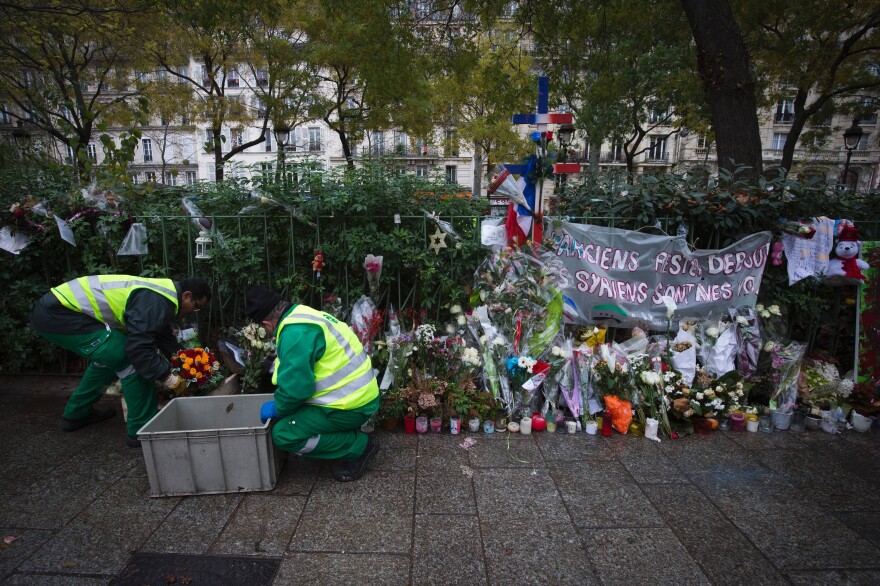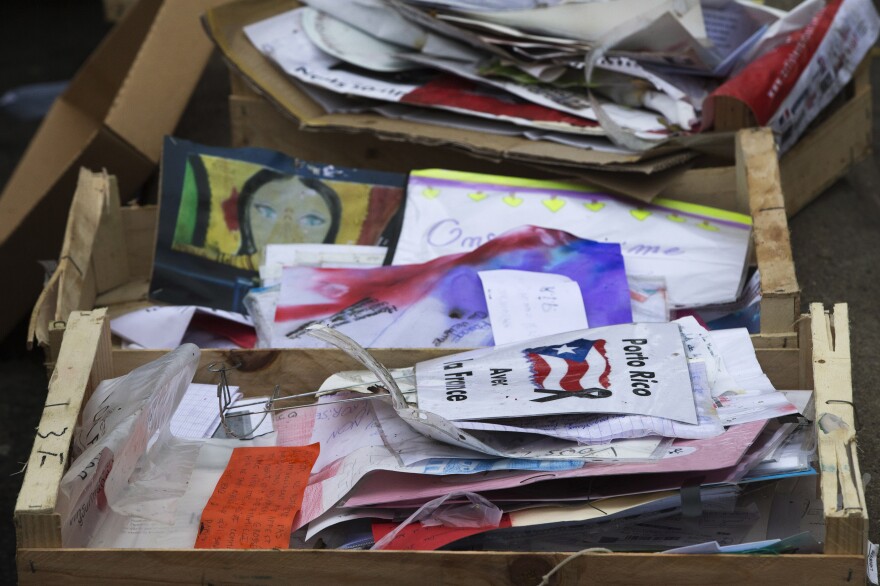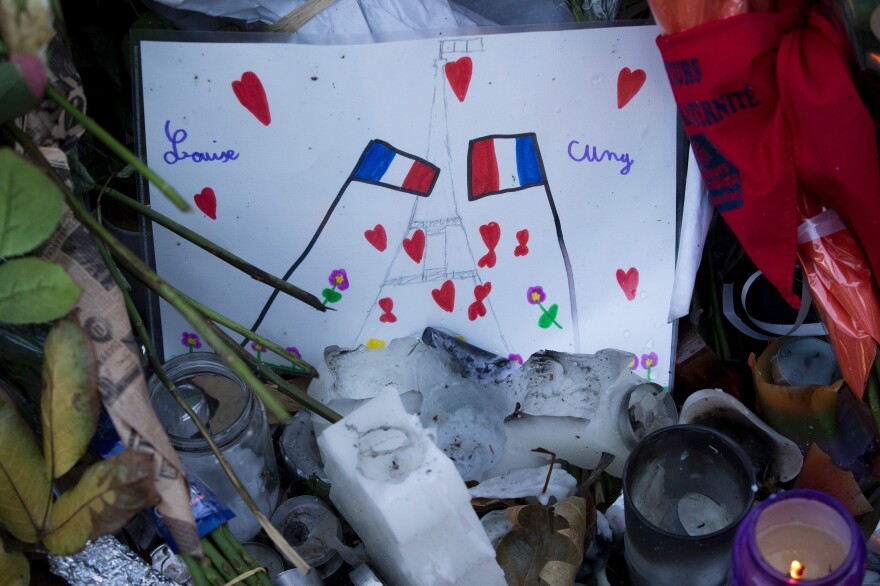In November, after coordinated terrorist attacks killed 130 people in Paris, informal memorials began to grow on the streets of France's capitol city. Outside the sites of the attack, mourners left flowers, cards, candles, poems, signs.
Six weeks later, people are still paying their respects. And their tributes may live on: the City of Paris plans to archive thousands of notes and drawings from the unofficial memorials.
The biggest memorial is outside of the Bataclan concert hall, where 90 of the 130 victims were murdered. The Bataclan is still closed and the entrance is covered with a tarp. But the site features a mountain of tributes from people around Paris, around France and around the world.

For the past two weeks, teams from the city's archives have been coming here to collect the memorabilia from the street and sidewalk. The artifacts are then dried out and cleaned.
Guillaume Nahon, who is in charge of the operation, says all the testimony on the street has emotional, historical and even scientific value.
He says when the archive crews have finished, the entire collection will be preserved and digitized, then put online for researchers and regular citizens to view.
Nahon says nothing was saved from memorials after January's attacks on the satirical newspaper Charlie Hebdo and a kosher supermarket that killed 17 people.

Maria Lopez Olivera lives down the street from the Bataclan. She moved to Paris from Portugal in 1967 as a 20-year-old — about the same age as many of the victims, she notes.
She thinks it's good to put the memorials in the archives, saying Parisians have all been "so affected" by the terrible, shocking events.
Hundreds of the drawings and notes are from children, often illustrated with the Eiffel Tower or the French flag.

Volunteer Gerald Leonard, who is helping the archives collect the memorabilia, says one boy's note particularly touched him.
The boy said: We're not scared anymore because they got all the bad guys.
Leonard calls this mound of remembrances the very heart of history.
"It's our obligation to preserve it for generations to come," he says.
Copyright 2021 NPR. To see more, visit https://www.npr.org.




